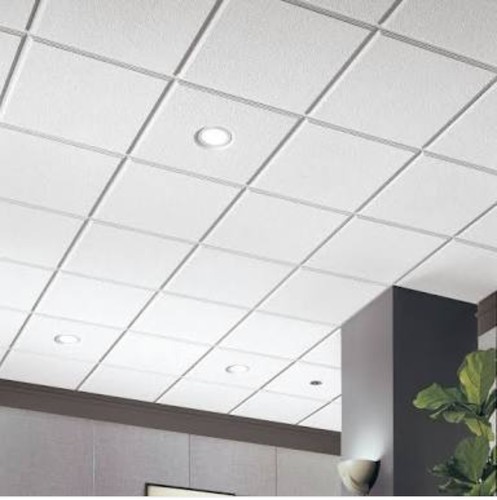Ceiling tiles

|
Ceiling tiles, also known as ceiling panels, are lightweight construction materials, which are used to cover ceilings. Placed in a steel or aluminium grid, they provide some thermal insulation but are usually designed to improve the aesthetics and acoustics of a room. They are commonly used in the commercial, residential, and industrial applications, useful in, retail stores, offices, hotels, hospitals, and so on.
Ceiling tiles are mostly made from mineral fibre, but other materials are available, such as fibreglass or thermoformed plastic.
The global ceiling tiles market was valued at USD 14.8 billion in 2014 and is expected to reach USD 30.0 billion by 2020, growing at a CAGR of around 9%. In terms of volume, the global ceiling tiles market stood at 990 million tons in 2014.
The global ceiling tiles market can be segmented into products and applications:
- On the basis of product type, the market is segmented as mineral wool, metal, gypsum, wood and other. The market is dominated by mineral wool, which accounted for more than 40% of the total market in 2014, due to properties such as fire safety, high performance, thermal insulation and noise reduction. Gypsum tiles market are expected to exhibit fastest growth rate in the next few years.
- On the basis of applications, the market is segmented into commercial, healthcare, educational, industrial and others. The commercial sector was the fastest growing in 2014. The commercial ceiling tiles segment is growing rapidly in the Asia Pacific region, driven by extensive building and construction activities such as offices, hotels, warehouses, retail houses, and so on. Healthcare and industrial applications are also important application markets for the ceiling tiles.
North America and Europe are the fastest growing regional markets. North America is driven by strong demand from U.S. It dominated the ceiling tiles market in 2014 with more than a third share of the total consumption. Strong growth prospectus in the Asia Pacifica are expected to provide a further boost to the market.
Some of the key industry participants in ceiling tiles market include: Armstrong Worldwide Industries Inc., LLC, Ceilume, Chicago Metallic Corporation, Foshan Ron Building Material Trading Co., Ltd., Guangzhou Tital Commerce Co. Ltd., Haining Shamrock Import & Export Co., Ltd., HainingChaodi Plastic Co. Ltd., Knauf, OdenwaldFaserplattenwerk GmbH (OWA), ROCKFON, Shandong Huamei Building Materials Co., Ltd., Saint Gobain SA, and SAS International.
[edit] Related articles on Designing Buildings
Featured articles and news
Latest Build UK Building Safety Regime explainer published
Key elements in one short, now updated document.
UKGBC launch the UK Climate Resilience Roadmap
First guidance of its kind on direct climate impacts for the built environment and how it can adapt.
CLC Health, Safety and Wellbeing Strategy 2025
Launched by the Minister for Industry to look at fatalities on site, improving mental health and other issues.
One of the most impressive Victorian architects. Book review.
Common Assessment Standard now with building safety
New CAS update now includes mandatory building safety questions.
RTPI leader to become new CIOB Chief Executive Officer
Dr Victoria Hills MRTPI, FICE to take over after Caroline Gumble’s departure.
Social and affordable housing, a long term plan for delivery
The “Delivering a Decade of Renewal for Social and Affordable Housing” strategy sets out future path.
A change to adoptive architecture
Effects of global weather warming on architectural detailing, material choice and human interaction.
The proposed publicly owned and backed subsidiary of Homes England, to facilitate new homes.
How big is the problem and what can we do to mitigate the effects?
Overheating guidance and tools for building designers
A number of cool guides to help with the heat.
The UK's Modern Industrial Strategy: A 10 year plan
Previous consultation criticism, current key elements and general support with some persisting reservations.
Building Safety Regulator reforms
New roles, new staff and a new fast track service pave the way for a single construction regulator.
Architectural Technologist CPDs and Communications
CIAT CPD… and how you can do it!
Cooling centres and cool spaces
Managing extreme heat in cities by directing the public to places for heat stress relief and water sources.
Winter gardens: A brief history and warm variations
Extending the season with glass in different forms and terms.
Restoring Great Yarmouth's Winter Gardens
Transforming one of the least sustainable constructions imaginable.






















